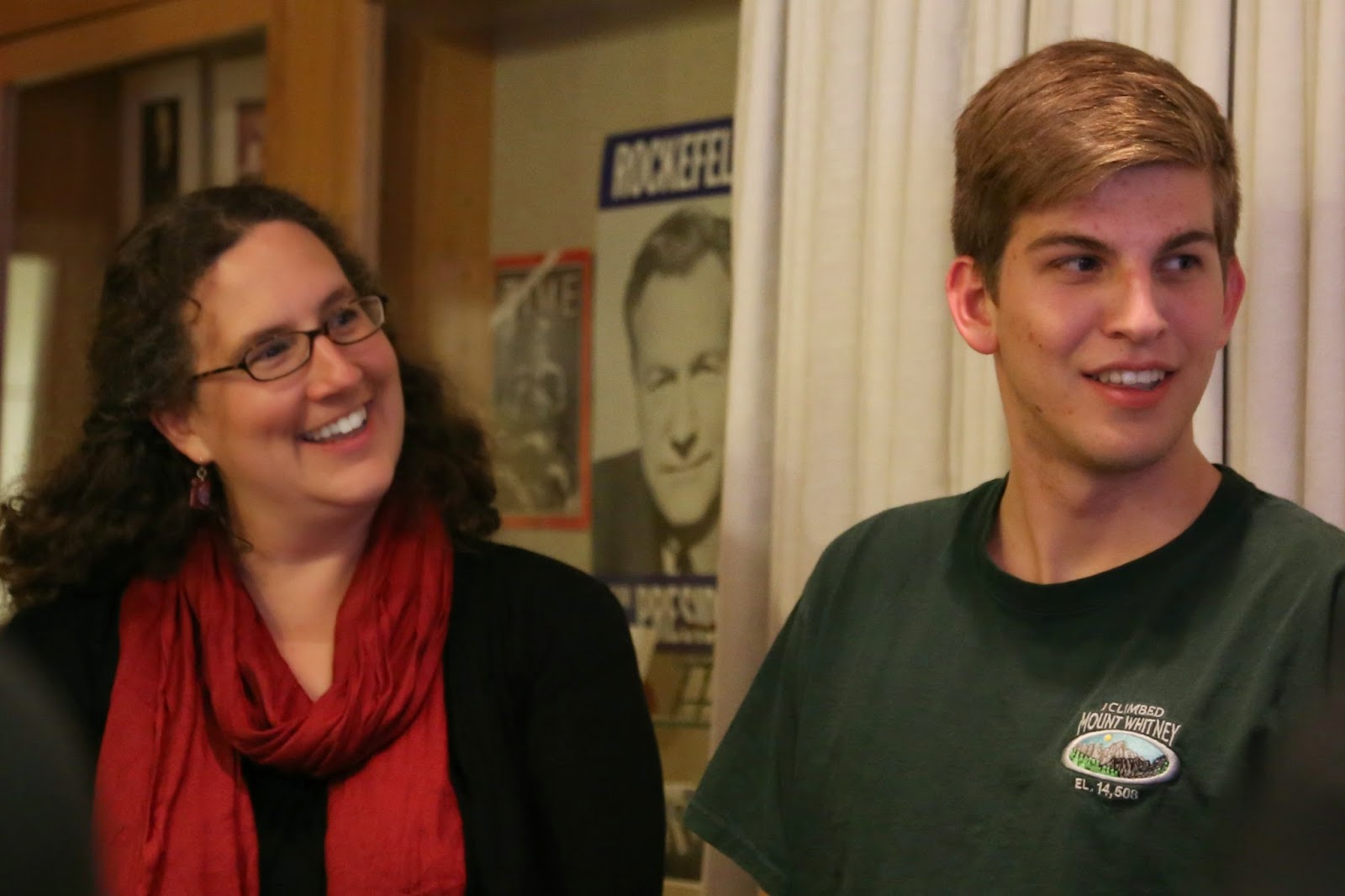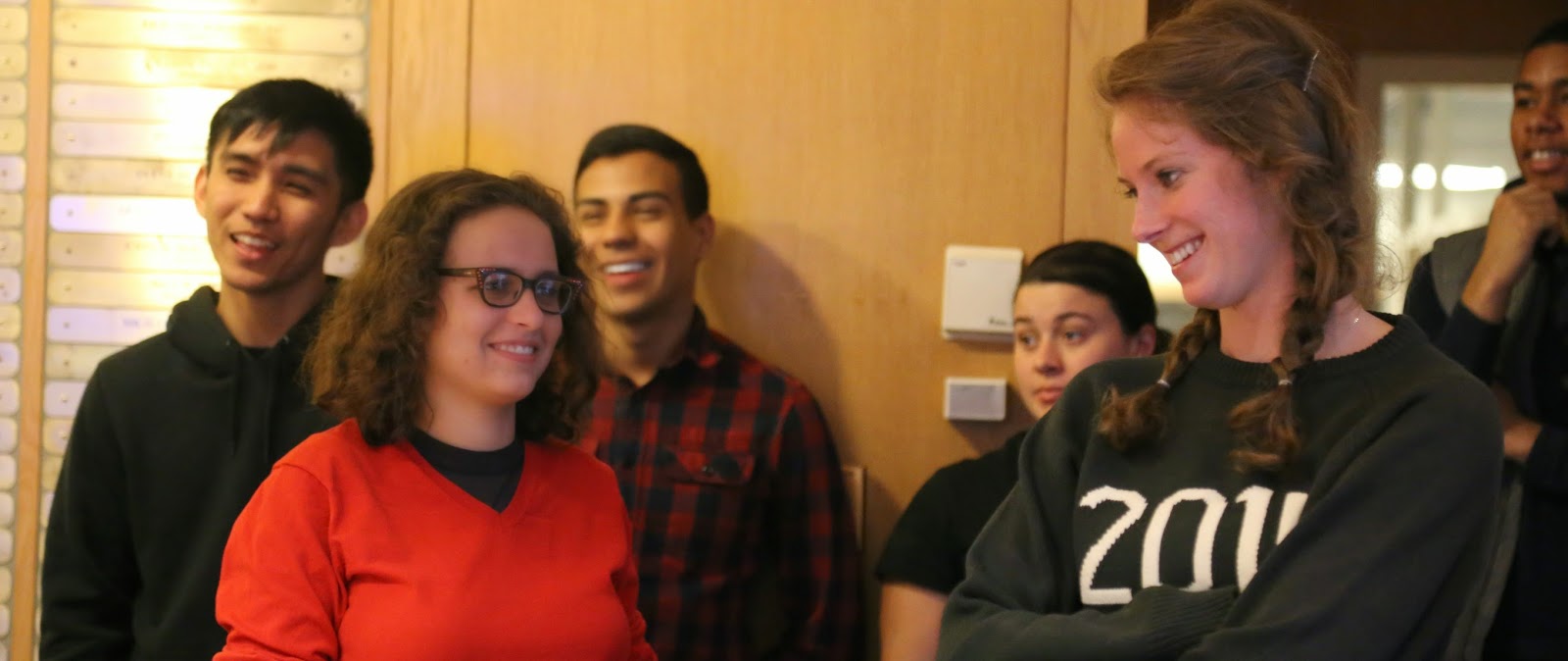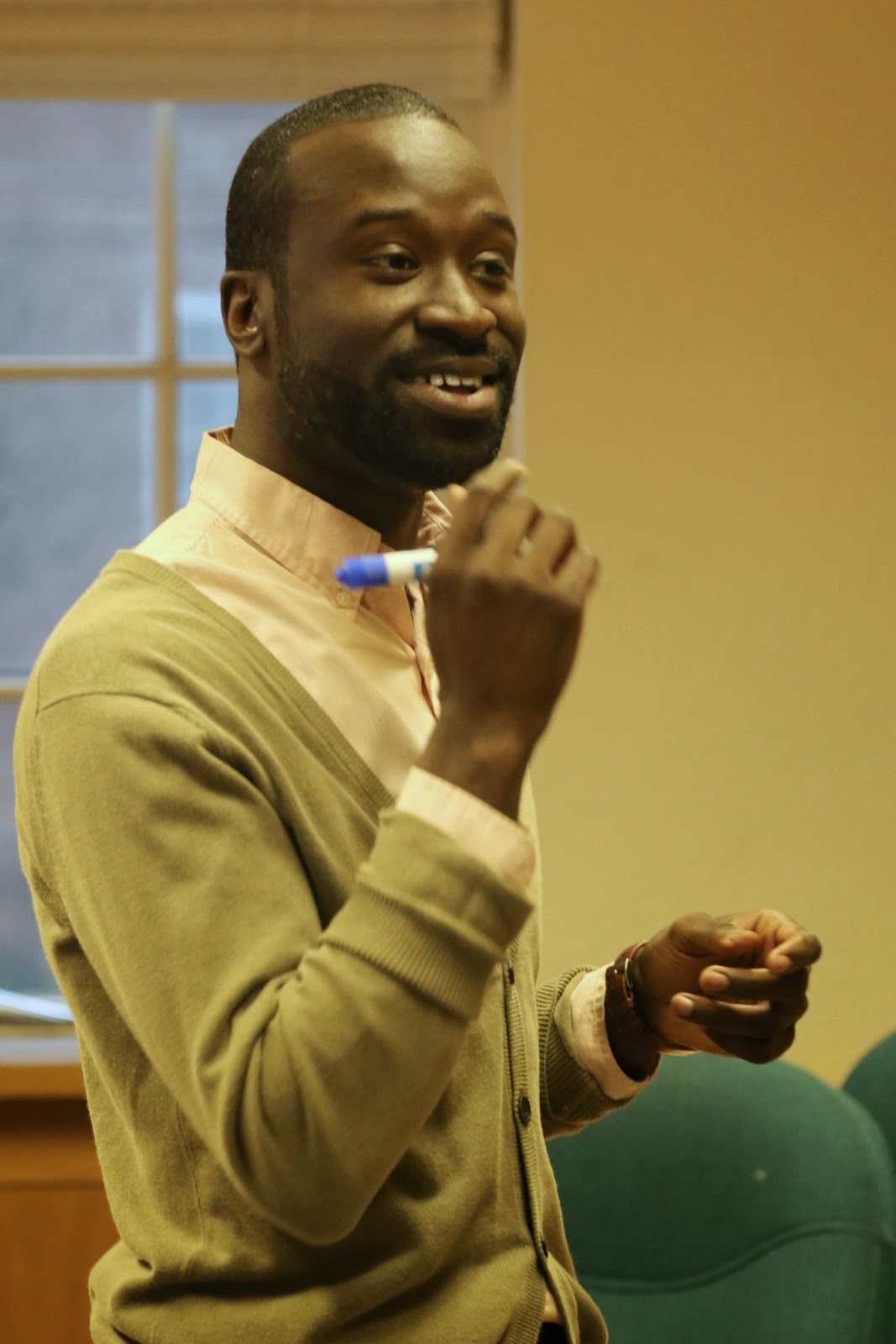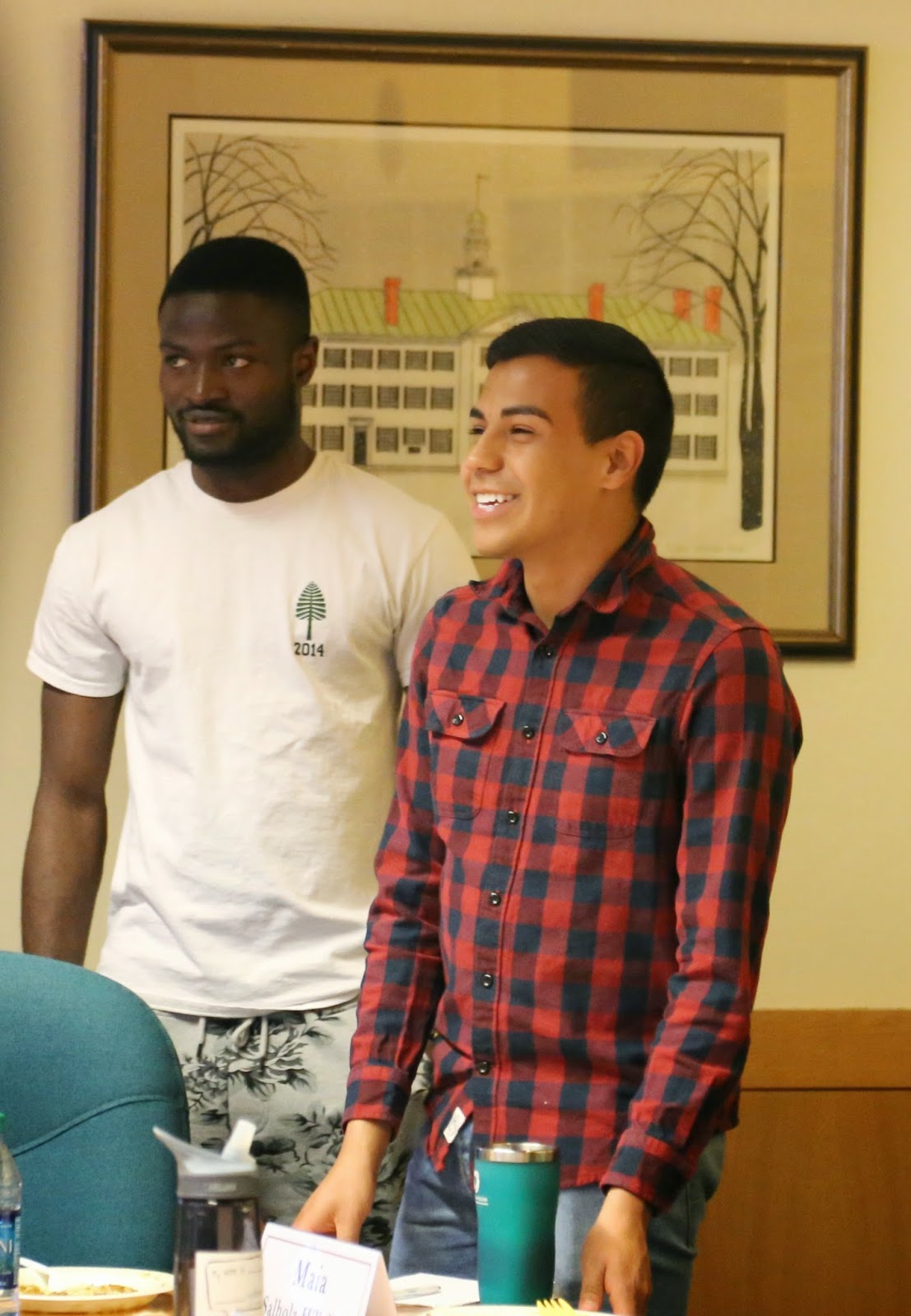- Public Policy
- Leadership
- Funding
- News & Events
- About the Center
Back to Top Nav
Back to Top Nav
Back to Top Nav
Back to Top Nav
This ongoing series explores sessions of the Rockefeller Global Leadership Program (RGLP) through participant narratives. RGLP engages Dartmouth students who have demonstrated leadership skills and would like to extend these skills on a globally conscious level. In this program, students focus on and further develop international leadership competencies, which have become increasingly crucial in corporate, public and non-profit sectors today.
How do you think about your and other cultures? The Intercultural Development Inventory (IDI), a measure of an individual's level of intercultural competence, challenged RGLP participants recently to address this question of personal capabilities.
 |
| The Dickey Center's Amy Newcomb, left, helps RGLP participants assess their cultural proficiency. Photo by May Nguyen '18. |
Just as gaining a cultural mindset is a gradual process, so is applying the IDI as a tool to improve competency. Following online IDI assessments, Monday’s session, entitled "Self-Assessment with IDI," offered an overview of this approach for assessing and building intercultural competence. RGLP Program Officer Vincent Mack and the Dickey Center’s Amy Newcomb co-led the session, which included breakout groups, role-play, and a short presentation. Throughout the next week, RGLP participants met one-on-one with Vincent, Amy, and several other qualified coaches to discuss their individual IDI profiles and plans. Participants are given the opportunity to retake the IDI and meet again with their coaches at the end of the term to evaluate their progress as outlined in their plans.
 |
| RGLP participants engage in a variety of conversation styles, some of them novel. Photo by May Nguyen '18. |
The Intercultural Development Continuum maps mindsets from monocultural through intercultural, passing through the phases of denial, polarization, minimization, acceptance, and adaptation. Vincent and Amy led RGLP through two exercises to experience these diverse outlooks. First, students with different conversation pacing systems such turn-taking, pausing, and overlapping were challenged to converse in a dissimilar style. Participant Ruben Gallardo Lopez '18 said the pacing exercise served as "an introduction to cultural differences that demonstrated how culture can influence the way people speak to others." Next, participants prepared role-play situations that demonstrated the various stages of intercultural competence. Finally, Amy and Vincent provided the group with more details about the continuum and each stage and prepared participants for their individual meetings.
I am grateful for this opportunity for self-reflection with the IDI, and I am now creating goals to move me forward in my personal continuum.
-Written by Maia Salholz-Hillel '15, Spring 2015 RGLP Participant
 |
| The Rockefeller Center's Vincent Mack educates participants on the Intercultural Development Inventory. Photo by May Nguyen '18. |
RGLP's recent session on assessing cultural proficiency with the IDI presented us with important concepts on critiquing our interaction with other cultures. The session began with an exercise on verbal 'pacing' to highlight the different methods of conversation. The pacing exercise employed three types of conversations including turn taking, pausing, and overlapping. Turn taking is a conversation in which parties wait their turn until the other party finishes expressing their ideas. Pausing is when there is a pause between responses between the two parties. Overlapping is a conversation in which both parties jump into the conversation without regard to when the other party has completely finished expressing their ideas. This exercise was important to me as it highlighted the different types of conversation and how many people’s way of conversing is influenced by their culture.
 |
| RGLP participants perform skits to explore different cultural scenarios. Photo by May Nguyen '18. |
The concept of intercultural development and its different states was also introduced. The Intercultural Development Continuum contains "five orientations that reflect a set of perception." These five core orientations are denial, polarization, minimization, acceptance, and adaption, with adaption being the ultimate desired goal. The importance of assessing intercultural competence is important in the globalized world as it provides the tools to become more comprehensive and capable in dealing with various types of global situations. The application of this too can be seen in everyday interactions between diverse individuals, negotiations in global businesses, and travel abroad. Intercultural competence does not only apply to communication, but also goes even further by analyzing one's behavior towards other people’s ideas and perceptions of their cultures.
-Written by Ruben Gallardo Lopez '18, Spring 2015 RGLP Participant